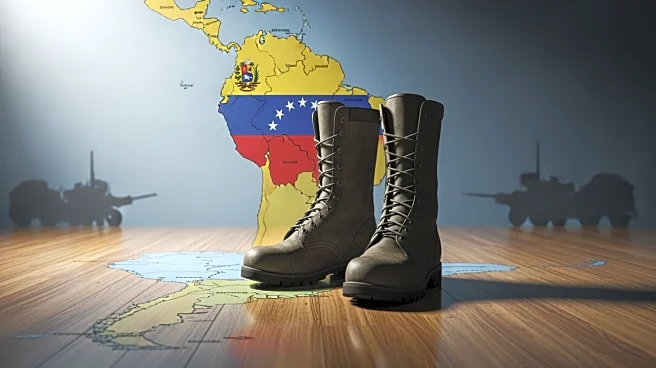What's Happening?
The U.S. Senate is set to vote on a resolution directing the removal of U.S. armed forces from hostilities in Venezuela that have not been authorized by Congress. This comes as the USS Gerald R Ford aircraft carrier moves towards Venezuela, amid indications
that President Trump is considering airstrikes against drug cartel targets. The resolution, backed by Senators Tim Kaine, Rand Paul, and Adam Schiff, reflects growing concern over the legality and scope of military actions in the Caribbean and Pacific regions. Secretary of State Marco Rubio and Defense Secretary Pete Hegseth have briefed lawmakers, but failed to provide clear legal justifications for the strikes.
Why It's Important?
The Senate's decision on the resolution is pivotal in shaping U.S. foreign policy and military engagement in Venezuela. It underscores the constitutional debate over the executive branch's authority to conduct military operations without congressional approval. The outcome could influence U.S. relations with Latin American countries and impact regional stability. The resolution also highlights concerns about extrajudicial actions and the need for transparency and accountability in military operations.
What's Next?
If the resolution passes, it could lead to a significant shift in U.S. military strategy in the region, potentially reducing tensions and fostering diplomatic solutions. The administration may face increased pressure to justify its military actions and engage in dialogue with Congress. The decision could also prompt discussions on revising the War Powers Act to ensure clearer guidelines for military interventions.
Beyond the Headlines
The situation raises broader questions about the ethical implications of military interventions and the balance of power between the executive and legislative branches. It may influence public opinion on U.S. foreign policy and military ethics, particularly regarding the use of force in international conflicts.

















